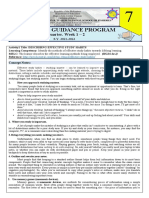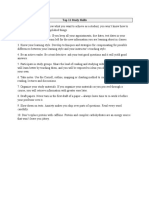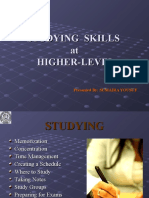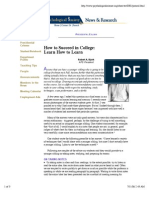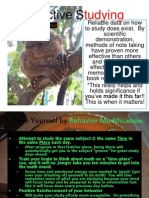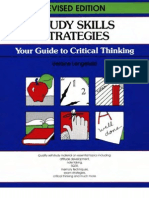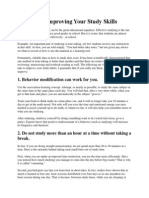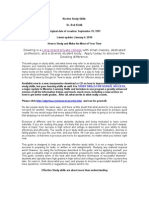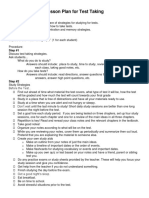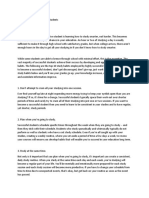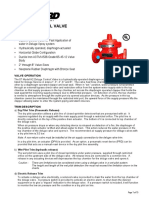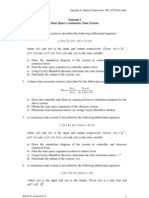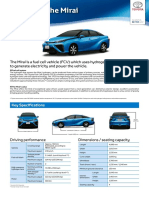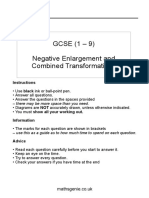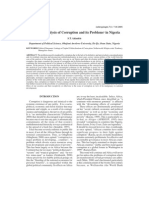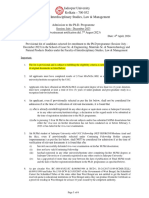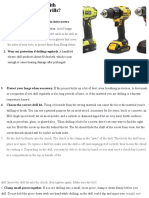0% found this document useful (0 votes)
49 views16 pagesStudy Booklet
The document provides study tips and strategies for students, including effective habits like taking responsibility and time management, as well as tools for reviewing like creating study checklists and flashcards. It also outlines memory techniques like using acronyms and acrostics, and advises students to avoid procrastination by motivating themselves with questions and having a reward ready upon completion of tasks.
Uploaded by
senuCopyright
© © All Rights Reserved
We take content rights seriously. If you suspect this is your content, claim it here.
Available Formats
Download as PDF, TXT or read online on Scribd
0% found this document useful (0 votes)
49 views16 pagesStudy Booklet
The document provides study tips and strategies for students, including effective habits like taking responsibility and time management, as well as tools for reviewing like creating study checklists and flashcards. It also outlines memory techniques like using acronyms and acrostics, and advises students to avoid procrastination by motivating themselves with questions and having a reward ready upon completion of tasks.
Uploaded by
senuCopyright
© © All Rights Reserved
We take content rights seriously. If you suspect this is your content, claim it here.
Available Formats
Download as PDF, TXT or read online on Scribd
/ 16


